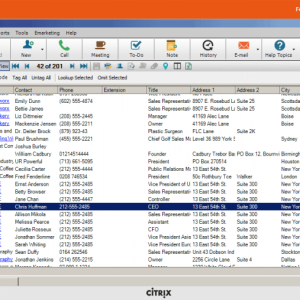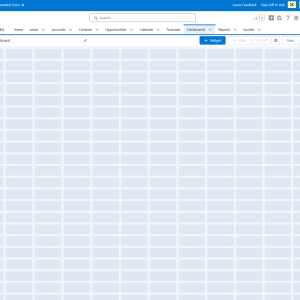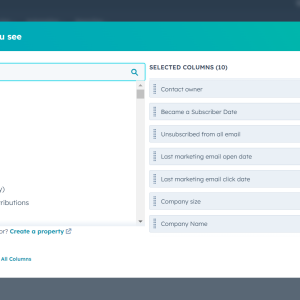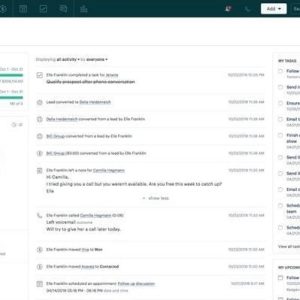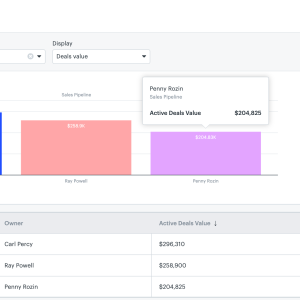In today’s highly competitive business landscape, Customer Relationship Management (CRM) has emerged as a crucial tool for companies to thrive and stay ahead. Research studies have consistently highlighted the numerous benefits that CRM can bring to businesses, ranging from improved customer satisfaction and loyalty to increased sales and profitability. By effectively managing and analyzing customer data, CRM enables organizations to better understand their customers’ needs and preferences, personalize their interactions, and build long-lasting relationships. This introduction will delve into the key findings of research studies, demonstrating why businesses need CRM to enhance their operations and drive success in the modern business world.
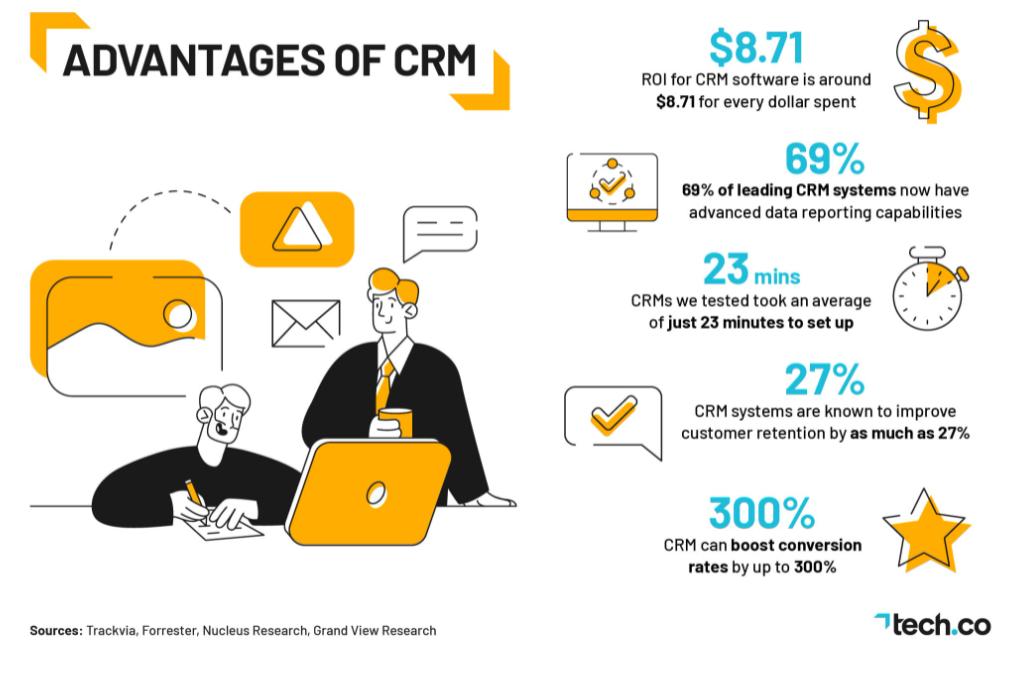
Customer Relationship Management (CRM) software is a vital piece of tech that over 91% of businesses with 11 or more employees are already benefiting from. But, with such a wide range of sectors and industries making the most of CRM technology, how do you know if, or which, CRM system is right for your business? Does every business really need a CRM?
You are viewing: Why Businesses Need CRM, According to Research
In this guide, we explain why yes, every business needs a CRM, with the research that backs it up. Plus, we’ll explain how the CRM you choose should be tailored to your business needs.
On the fence about CRM? Download our FREE Duanetoops PDF Guide to CRM Costs
In this guide:
Why Your Business Needs CRM
There are many things that contribute to the success of a business, but none more so than business efficiency. It’s one of the reasons why our research suggests that every business needs CRM software.
Reporting Functionality and Efficiency
CRM’s are designed to make your business more efficient by offering a place to store, manage and visualize data. Businesses with tight budgets often lack the capital to invest in costly data reporting systems, but with CRM software you’ll be able to see all your data in one. Prices will vary, but even the cheapest software will offer basic data reporting functionality, with some as little as $10 a month able to create customized reports and customizable dashboards.
According to our research, 77% of leading CRM platforms now provide a competent level of data reporting capability. As well as customer information, a lot of CRM systems have the capacity to hold data relating to:
- Stock and products
- Revenue
- Sales leads
- Marketing information
- Operations data
Our research also shows that 69% of leading CRM’s now offer advanced data reporting capabilities.
Whether you’re looking for customer service, marketing, or sales-focused CRM, a system with advanced – or even competent – data reporting capabilities is going to help you understand your business in much finer detail, while saving you both time and money.

Flexible Pricing
If you already know your business needs a CRM, you’ll also know that It’s unlikely that you’ll need every single feature on offer. Most vendors will pack as many features into their software as possible, all in the name of outdoing their competition. However, this often means businesses pay more for CRM systems with features they don’t actually utilize.
The good news is that CRMs all vary in price, so before you invest, make sure you know what features would be most impactful for your business, then shortlist your favorite CRM on offer.
You can use our free CRM comparison tool to filter the main feature you’ll need, or use our research below to help guide you.

Strong ROI
Nucleus Research estimates that CRM software has helped thousands of businesses grow, with a return-on-investment of around $8.71 for every dollar spent. Of course, CRM software, like most systems, is only a tool – but if you use it efficiently, you’ll also be able to reap the benefits.
If you’d like to know exactly how much return on investment a CRM system would provide, simply calculate how much time you spend on monotonous administrative tasks that a CRM system could automate, and consider what you could do with that time instead.
Live support can be costly, depending on your individual business needs, but our research suggests that even the most basic package will offer support.
Duanetoops has analyzed over 20 CRM products and created an aggregated score based on the levels of customer support offered by each provider. The graph below charts CRM prices against the level of customer support provided:

CRM is Customizable (If You Can Afford It)
Customization is available with CRM software, but strong customization options are typically tied to higher priced tiers.
With customization you can
- Create ‘Custom Dashboards’ to visualize data of your choosing
- Create ‘Custom Task Types’ that are relevant to your business
- Create data points using ‘Custom Objects’
- Edit the different forms within the CRM system to store relevant info
In our research we analyzed over 20 CRM products and created an aggregated score based on the levels of customization offered by each provider. The graph below charts CRM prices against the level of customization provided:

Key takeaways from our research:
- For as low as $0-$10 per month, buyers can expect to be able to create their own custom fields for their CRM system’s in-built forms – for instance, a field for each customer’s unique ID.
- Paying around $20 per month, in most instances, will mean you’ll be able to create custom dashboards and automations up to a set limit.
- Paying $60 per user per month or upwards will allow you to get your hands on a CRM system with fewer limitations on the number of custom dashboards and automations you can create.
- Paying $100 per user per month is when you’ll start to see the very best customization options on the CRM market. This includes the ability to create custom objects and store custom data.
CRM Software for Small Businesses
CRM software is beneficial to virtually any business, but small businesses in particular will reap the best rewards. Due to the scaling nature of smaller companies, these platforms can make a big impact on your ability to attract new customers, as well as retaining current customers.
If you’re a small business owner struggling to manage your customer data, sales pipeline or workflow, the following CRM software can help. Our top pick is Zoho CRM. Zoho compared to Salesforce is less expensive and also offers a free plan to try before you buy, while still having strong features, making it a great fit for small companies.
Check out our best CRM for small business guide for more info.
CRM Software for Sales
See more : Zendesk vs HubSpot – Price and Features Comparison
One of the most popular uses for CRM software is to organize your sales funnel. It allows you to manage leads — from capture to conversion — as well as track contacts, analyze data, and automate business practices to save your team time and money.
This kind of CRM was made popular by Salesforce, but there are plenty of other options out there if you’re looking to get started. Take a look at the list below and check out our guide to the best Sales CRM software for more information on which one is best for your business.
CRM Software for Marketing
CRM software is a bit different for marketing than for other industries. For one, it’s often much more expensive, with prices getting as high as $1,500 per month for some providers. The reason, though, is that CRM for marketing is often laden with automation features that can fully take over your marketing efforts without any need for intervention from your team.
CRM for marketing can allow you to reach new customers and retain loyal customers through email, content, social media, and other mediums, so you are truly everywhere at once. Plus, with plenty of automations, you can take the time to focus on more important, big picture decisions. Take a look at some of our top options here!
Check out our best CRM for marketing guide for more info.
CRM Software for Customer Service
CRM for customer service is similar to CRM for sales, particularly when it comes to price. These two are so similar, in fact, that many providers will offer them in tandem, like Salesforce’s Essentials plan, which combines the Sales Cloud and Service Cloud into one.
Still, if you’re a customer service team looking for a bit of help, a CRM for sales isn’t going to do the trick. These CRM options we’ve provided below are specifically aimed at helping you take care of your customers easier than ever. Take a look at them to get a better idea of what might be a good fit for your business.
Does My Business Need a CRM system in 2023?
According to our research, yes. Investing in CRM may seem costly, but in the long run it’ll allow you to spend hard-earned cash on other business priorities.
That’s obviously not to say there are no disadvantages to setting up and using CRM software, but if you can avoid the major pitfalls, like investing in features that you know you won’t use, then the benefits will certainly outweigh the costs.
How to find the right CRM for your business
Understanding your business and knowing your goals is the first step in finding the right CRM for your business.
No two businesses are the same, which is why we designed a free CRM comparison tool to allow you to choose the most important features and functionality relevant to your sector, to compare the different types of CRM available so you can choose the right CRM for your business needs.
- Learn more about CRM software
- Unpack the top 12 benefits of CRM
- Find the right CRM for your business
If you click on, sign up to a service through, or make a purchase through the links on our site, or use our quotes tool to receive custom pricing for your business needs, we may earn a referral fee from the supplier(s) of the technology you’re interested in. This helps Duanetoops to provide free information and reviews, and carries no additional cost to you. Most importantly, it doesn’t affect our editorial impartiality. Ratings and rankings on Duanetoops cannot be bought. Our reviews are based on objective research analysis. Rare exceptions to this will be marked clearly as a ‘sponsored’ table column, or explained by a full advertising disclosure on the page, in place of this one. Click to return to top of page
That’s a wrap on “ Why Businesses Need CRM, According to Research ” We hope you’ve found a trove of useful insights and fresh perspectives. Your opinions and ideas matter to us—join the conversation below and share your take! Hungry for more tech insights? Dive into our diverse collection of articles where innovation meets practicality. Discover More CRM Softwares.
Stay in the loop with the latest in AI and tech – your journey into the digital future continues at duanetoops.com.
#Businesses #CRM #Research
Source: https://duanetoops.com
Category: CRM
